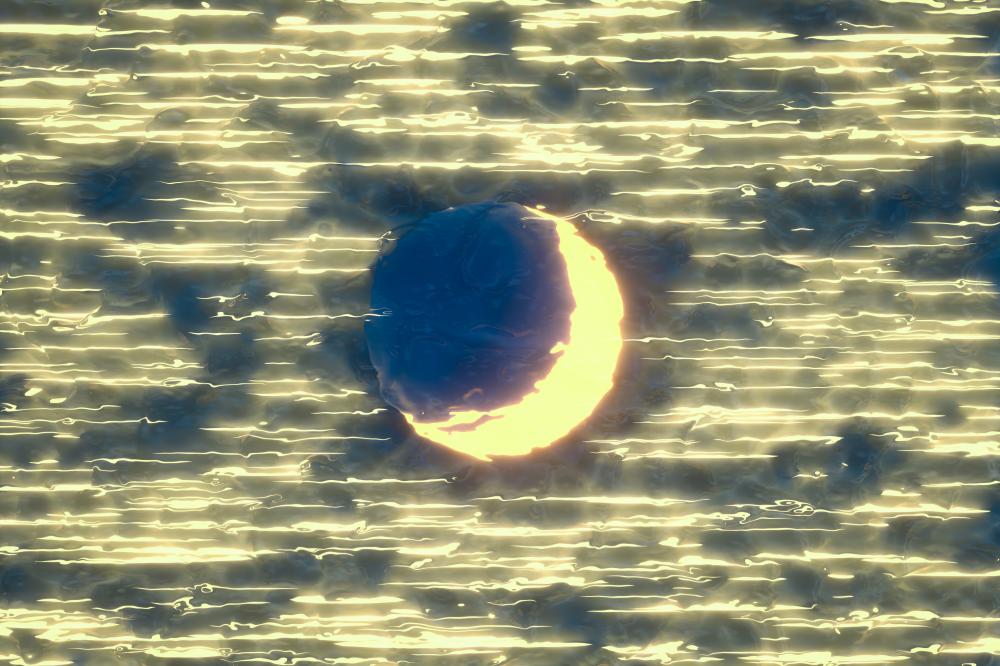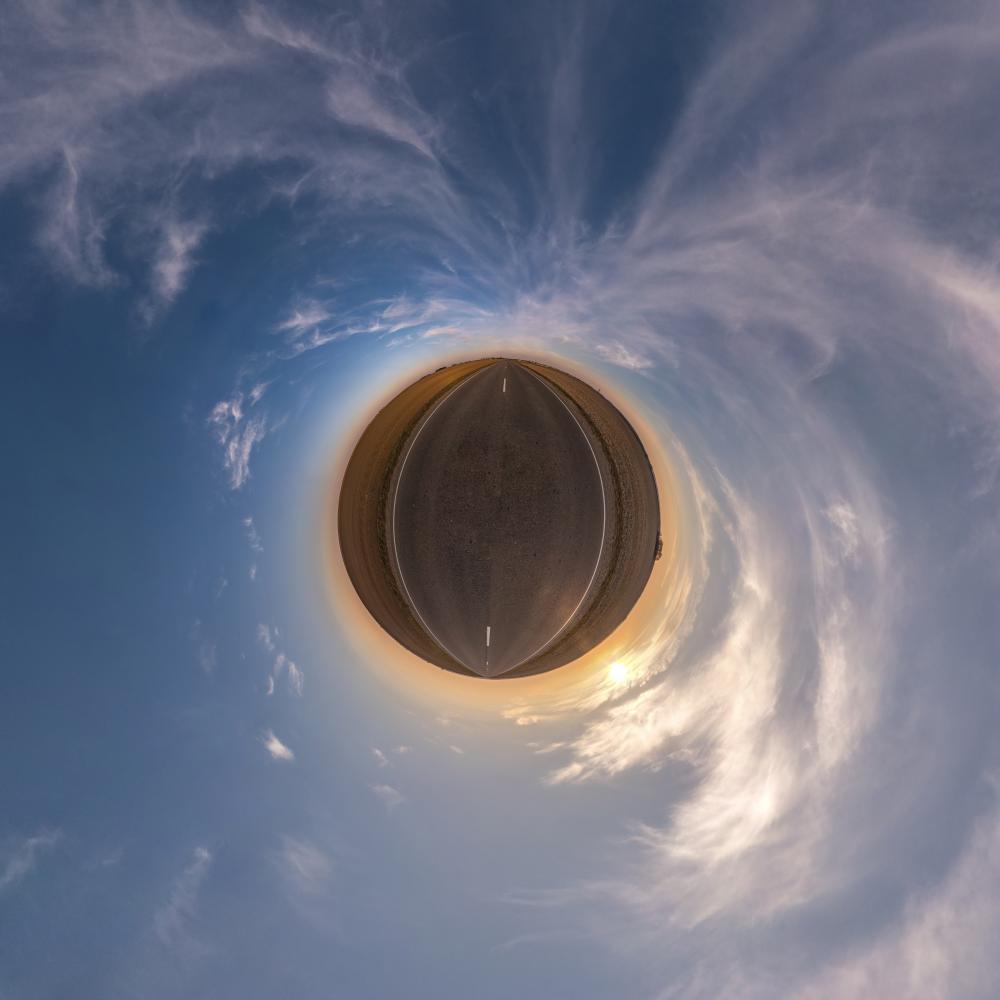
Understanding Solar Eclipse Blindess
Witnessing a solar eclipse is a rare and mesmerizing experience. However, the beauty of this celestial event can be overshadowed by the risk of solar eclipse blindness, a condition that can occur when one looks directly at the sun without proper eye protection. At Eclipse Injury Attorneys, we’ve seen firsthand the devastating impact this can have on individuals. Solar eclipse blindness, medically referred to as solar retinopathy, happens when the retina is damaged by excessive ultraviolet (UV) light exposure.
The Importance of Proper Protection
It’s crucial to understand that not all sunglasses are created equal, especially when it comes to observing a solar eclipse. To prevent solar eclipse blindness, one must use eyewear that conforms to the ANSI standards, which ensure that harmful UV and IR radiation is adequately blocked. This is an area we cannot stress enough; using improper or counterfeit sunglasses can lead to permanent eye damage.
Identifying Symptoms of Solar Eclipse Blindess
If you or someone you know has been exposed to a solar eclipse without adequate protection, be vigilant for symptoms of solar eclipse blindness. These can include blurred vision, eye pain, headaches, sensitivity to light, and loss of central vision. The onset of symptoms can be immediate or may develop over time, making it imperative to seek prompt medical evaluation and care.
Seeking Medical Attention
At the first sign of discomfort or visual disturbance following a solar eclipse, we advise you to seek medical attention. A healthcare professional can assess the extent of the damage and recommend appropriate treatment interventions. Early diagnosis can significantly improve the management of any potential long-term effects on your vision.
What to Do If Affected
- Contact your eye doctor immediately for an evaluation.
- Preserve any evidence of the sunglasses used, including the packaging and receipt.
- Document any symptoms and their progression as accurately as possible.
Exploring Your Legal Options
If solar eclipse blindness occurs as a result of using defective or incorrectly labeled sunglasses, you may have legal recourse. At Eclipse Injury Attorneys, we specialize in helping victims navigate the complexities of product liability law. Our goal is to hold negligent parties accountable, ensuring that our clients receive compensation for medical expenses, pain, suffering, and any other related damages.
Personal Insights and Anecdotal Evidence
One of our clients, a young father who watched a solar eclipse with his daughter using what he believed were safe, approved glasses, experienced significant visual impairment. It was heartbreaking to witness his journey, from the initial shock and fear to the relief he felt after receiving proper legal and medical guidance. This case underscored the critical importance of using certified protective eyewear and the difference prompt action can make.
Prevention is Key
To avoid the risk of solar eclipse blindness, education and awareness are essential. Before an eclipse, ensure you have the right glasses, and don’t be swayed by uncertified products. Remember, regular sunglasses, no matter how dark, are not safe for looking at the sun.
Holding Manufacturers Accountable
One of our primary missions is to ensure that manufacturers of unsafe sunglasses are held responsible. By pursuing legal action against those who produce or sell non-compliant eyewear, we not only seek justice for our clients but also work towards preventing future incidents of solar eclipse blindness.
Solar eclipse blindness is a preventable condition. With the right knowledge and preparations, everyone can enjoy the wonder of a solar eclipse without risking their sight. Should the worst happen, know that Eclipse Injury Attorneys are here to provide expert legal guidance and support. Protect your vision, and ensure the wellbeing of your loved ones by adhering to safety standards and seeking assistance when needed.

How do you know if a solar eclipse damaged your eyes?
Realizing that your eyes may have been damaged by a solar eclipse can be unsettling. The first signs often include blurred vision or a loss of central vision, which might seem like there’s a blind spot in the middle of your field of view. Some folks experience changes in how they see colors or encounter increased sensitivity to light. It’s crucial to remember that these symptoms can surface immediately after exposure or develop over several days. We’ve seen cases where individuals didn’t notice anything amiss until well after the eclipse. If you’re experiencing any discomfort or changes in your vision, it’s wise to consult an eye doctor as soon as possible. Early detection can be key in managing potential long-term effects on your eyesight.
Why do my eyes hurt after the solar eclipse?
Experiencing eye pain after watching a solar eclipse is a telltale sign that your eyes might have been exposed to harmful rays without adequate protection. The sun’s ultraviolet (UV) radiation can cause inflammation in the cornea’s outer layers, leading to a condition akin to sunburn but on your eyes, known as photokeratitis. Simultaneously, the excessive light exposure can damage the retina, contributing to the discomfort you’re feeling. It’s a serious indicator that your eyes could have sustained more damage than you realize, warranting an immediate consultation with an eye healthcare professional. Remember, while pain is a clear signal from your body that something is not right, other forms of damage might not be as readily apparent, underscoring the importance of a professional evaluation.
What makes eclipse glasses safe, and how do you choose the right pair?
Eclipse glasses must meet specific international safety standards to be considered safe for solar viewing. They should block out 99.999% of sunlight and must conform to the current ISO 12312-2 standard. When choosing eclipse glasses, it’s crucial to purchase from reputable vendors who clearly indicate compliance with safety standards. Beware of glasses that lack the ISO mark or come from questionable sources, as they may not provide adequate protection. An effective pair of eclipse glasses will allow you to see the sun in a natural orange hue, without any discomfort or blurriness. We’ve encountered numerous cases where individuals used improper eyewear, suffering consequences despite believing they were protected. Always verify the safety of your glasses before an eclipse to safeguard your vision.
What legal recourse is available if I’ve suffered eye damage from a solar eclipse?
If you’ve suffered eye damage due to defective or mislabeled eclipse glasses, you may have legal options to pursue compensation. Product liability law can hold manufacturers, distributors, or retailers responsible for selling unsafe or counterfeit products. At Eclipse Injury Attorneys, we specialize in assessing such cases and can advise on the best course of action, whether it’s negotiating settlements or pursuing litigation. Documenting your experience, from the purchase of glasses to the onset of symptoms, plays a critical role in building a strong case. Rest assured, navigating these legal waters can be complex, but you don’t have to do it alone. Don’t hesitate to reach out to us for guidance on how to proceed and ensure that those responsible are held accountable.
How can solar eclipse blindness be prevented?
Preventing solar eclipse blindness is primarily about educating yourself and others on the importance of using proper eye protection when viewing the sun. Only observe the sun through approved solar-viewing glasses or devices that meet the ISO 12312-2 standard. Regular sunglasses, even those with UV protection, are not sufficient. It’s also wise to double-check your equipment if it’s been stored away since the last eclipse, as scratches or damage can compromise their safety. Additionally, teaching children and others about the risks and proper viewing techniques can help prevent accidents. Knowledge and preparation are your best defenses against solar eclipse blindness.
What symptoms after a solar eclipse warrant immediate medical care?
After viewing a solar eclipse, if you experience symptoms such as blurred vision, a noticeable blind spot in your central vision, eye pain, light sensitivity, or seeing distorted shapes, it’s critical to seek medical attention immediately. These symptoms could indicate solar retinopathy or photokeratitis, both of which require prompt assessment and care from an eye care professional. Delaying could result in worsening of symptoms and potentially long-term damage. We advocate for erring on the side of caution; if you’re unsure whether your symptoms are serious, it’s better to consult a professional. Your vision is irreplaceable, and taking timely steps can make a significant difference in your eye health.
Resources
- American Academy of Ophthalmology – Solar Eclipse Eye Safety – Learn about the importance of proper eye protection during a solar eclipse to prevent eye damage.
- Mayo Clinic – Solar Retinopathy – Understand the symptoms and causes of solar retinopathy, also known as solar eclipse blindness.
- National Eye Institute – Solar Retinopathy and Solar Eclipse Eye Safety – Find information on solar retinopathy and how to protect your eyes during a solar eclipse.